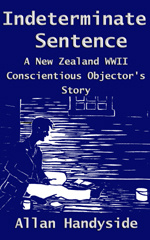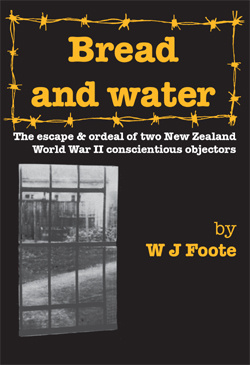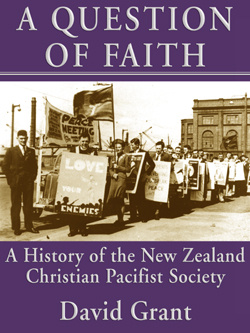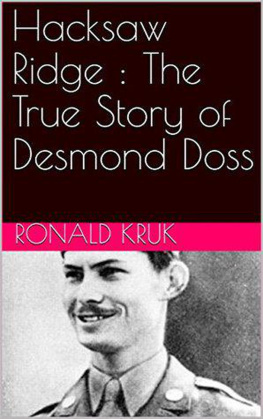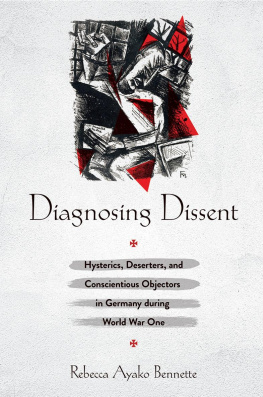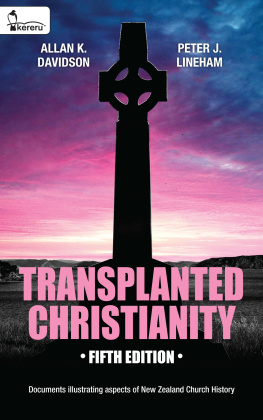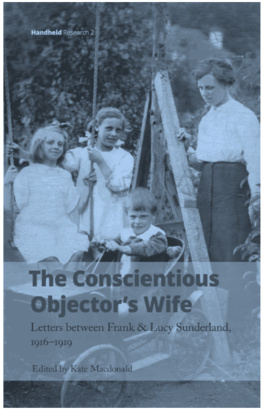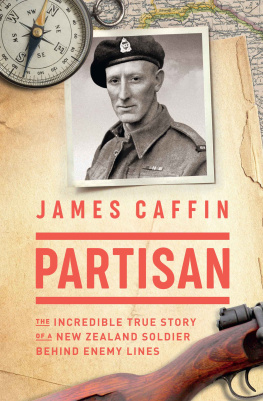Indeterminate Sentence
A New Zealand WWII Conscientious Objector's Story
Allan Handyside
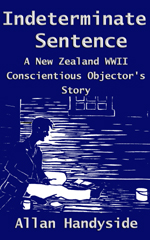
Copyright 2013 Allan Handyside
Smashwords edition
First published in print format 2005
by Philip Garside Publishing Ltd.
All rights reserved. This book or any portion thereof may not be reproduced or used in any manner whatsoever without the express written permission of the publisher except for the use of brief quotations in a book review
This ebook is licensed for your personal enjoyment only. This ebook may not be re-sold or given away to other people. If you would like to share this book with another person, please purchase an additional copy for each recipient. If youre reading this book and did not purchase it, or it was not purchased for your use only, then please purchase your own copy. Thank you for respecting the hard work of this author.
Cartoons have been used with the artists permission.

Philip Garside Publishing Ltd
PO Box 17160, Karori,
Wellington, New Zealand 6147
Email books@pgpl.co.nz
Web www.pgpl.co.nz
ISBN 978-1-927260-00-5
Table of Contents
Foreword
In the 1950s and 1960s most New Zealand children were very conscious of the impact of World War II on their parents and other family members. Many of the kids we went to school with had fathers who had served overseas. ANZAC day in particular was a stark reminder of the recent war.
Our experience was different to the other kids around us. Dad rejected the call to compulsory military service and spent a good part of the war in Rangipo Prison as a defaulter. The impact of this experience, the disruption caused to his relationship with his parents and his continuing commitment to the peace movement was obvious throughout the rest of his life.
In his retirement Dad devoted a lot of time to sorting old papers and letters, many of which he lodged in the Alexander Turnbull Library to preserve the record and make them available to interested researchers. He prepared various drafts of Indeterminate Sentence but was unable to find a publisher before he died. We have made only minor editing changes.
Our family are publishing this book, not because it will be a best seller, but because it captures a piece of New Zealand history that is not well known. The small group of people described in this book had a strong influence on the thinking of others, as New Zealand grappled with the issues raised by the Vietnam war, and more recently the presence of nuclear ships in New Zealand waters.
Dad wrote about his life as a defaulter to honour his colleagues and help us to understand the circumstances of the day. You will read of the rift which developed between Dad and his father due to his Pacifist stand. We do want to add, that by the time we knew them, both their differences had been put aside and they enjoyed a very supportive relationship in post war years.
This book, along with several others published earlier, aids our understanding of how a small group of pacifists maintained their integrity and emerged from their wartime imprisonment to return to normal lives, where they continued to promote beliefs that are as relevant today.
In closing we wish to acknowledge Rachels (Allans granddaughters) work in assisting to re-organise the text from the original typewritten version into computer format and her research at the Alexander Turnbull Library into Dads records. Thanks Rach, you have put a lot of hours into this project.
Rob and Dave Handyside
November 2005
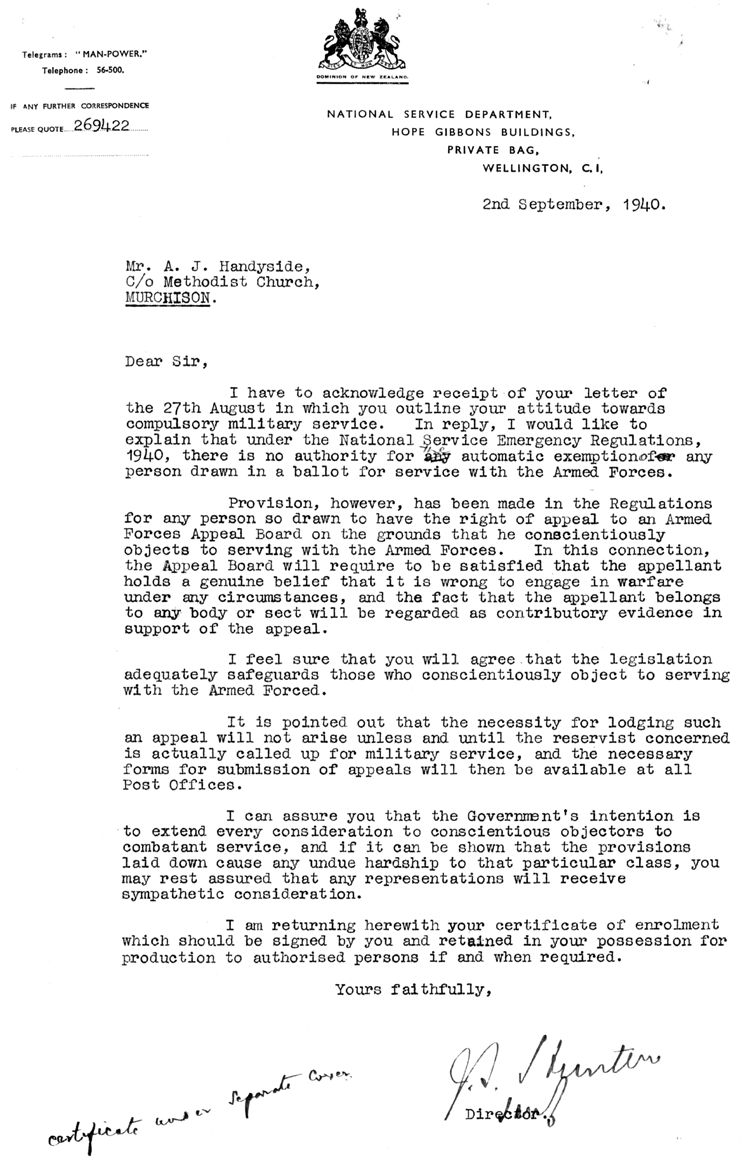
Letter from Director of National Service responding to a letter from Handyside raising objections to taking part in military service. Handyside collection Alexander Turnbull Library.
Preface
Human rights became a watch word in the 20th century. Mans inhumanity to man, has been found to be more intransigent than ever imagined by political visionaries, religious leaders, scientists, educators or the vast host of people of goodwill in the many varied nations of the world. A casual knowledge of mankinds ugly history reveals men, women and nations who have shown no restraint in brutality and deeds of shame. Every act of compassion seems to have been matched by many of cruelty, yet hope promised that cruelty would surely lessen as science and universal education marched hand in hand through the 20th century. But against the great good that has been achieved, we must record the millions of martyrs and victims of war, not forgetting increasingly shocking means of persecution and torture. Now, human rights and human freedoms are seen to be goals that are still afar off, yet need to be cherished and sought with urgency.
The infringements of human rights and freedoms recorded in this book are mild and insignificant compared with the records of many other nations. Nevertheless, similar issues are raised concerning corrupt human relationships, in the small affluent nation of New Zealand, where democracy and social progress are taken for granted.
Solutions are not offered to the problem of corrupt organisation, but questions are raised that need always to be in the forefront of our minds questions about personal integrity, political expediency, open discussion, rights of minorities, mental cruelty, censorship, access to information, punishment of crime, secret arrests, the right of privacy, fair trials and restraints on punishment. Other questions underlie these issues of freedom of conscience and the right to personal fulfilment.
It is my conviction that until the day dawns when society and the individual learn to balance effectively the interrelationships between freedom and responsibility, the acute problems arising from mans inhumanity to man will continue.
In the final analysis, the brotherhood and sisterhood of people only matures within the Fatherhood of God.
1 And it was night
The celebration of my 25th birthday on 22 August 1942, went awry. Instead of enjoying an informal supper party in my hut at Strathmore Military Defaulters Detention Camp in the Rotorua District, the small group of friends was abruptly interrupted and I was escorted to appear before the magistrate in the camp office. The rather lenient regulations governing the camp had permitted a birthday cake to be sent by my parents. We had enjoyed one piece each when the crisis came. I never heard what happened to the remains of the cake.
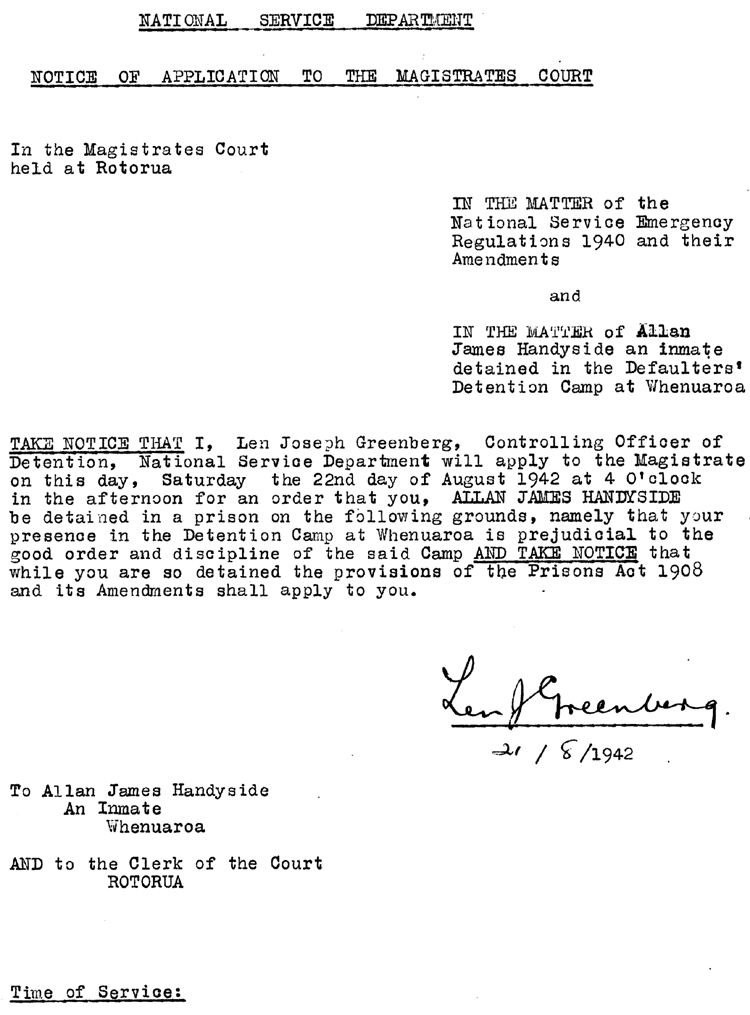
Magistrates Court Summons. Handyside collection Alexander Turnbull Library.
Late that birthday evening, with seven other Methodist conchies , I travelled in a canopied truck through the pumice country of the North Island to an unknown destination. It was a wet, cold night. Most of us were carsick. Perhaps truck-sick would be a better description, for not only did we vomit, but we became sick of the swaying truck on its hurried journey, escorted by uncommunicative patrolmen from the Detention Camp. Eventually we arrived at Hautu Prison Camp, near Lake Taupo, singing heartily, to be sternly rebuked by the prison superintendent, who informed us we were on our way to another prison where, those in charge will stand no nonsense.

